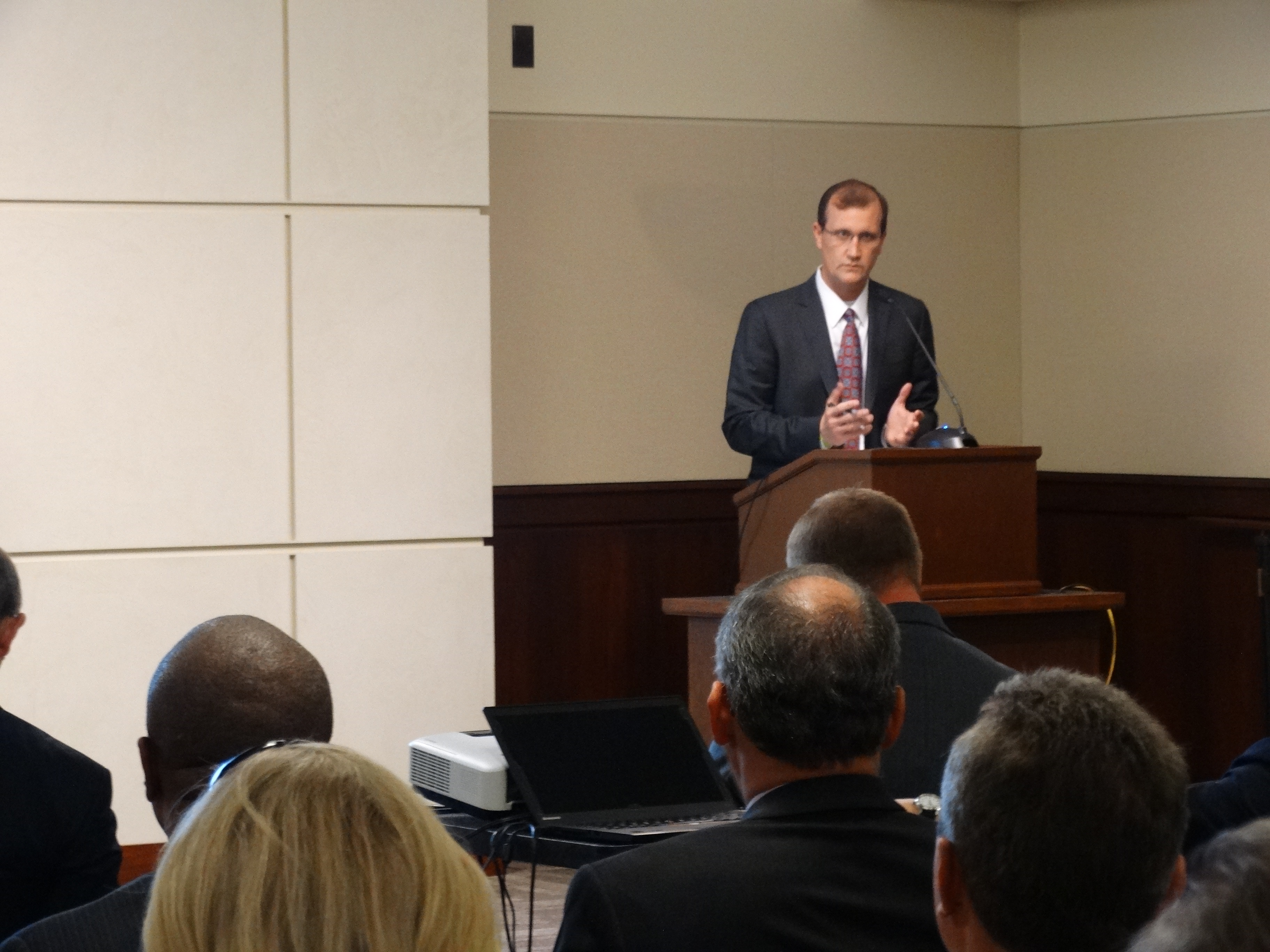Consulting firm says ‘nothing is off the table’ in efficiency study, including education
Topeka ? A consulting firm being paid nearly $2.6 million to find savings and efficiencies in Kansas state government said Tuesday that it may examine the budgets and operations of individual universities and public school districts in Kansas as it looks for ways to find savings and efficiencies in state government.
“The short answer is nothing is off the table right now,” said John “J.W.” Rust, a senior director with New York-based Alvarez & Marsal.
Kansas lawmakers selected that firm last month to conduct a study of state spending and operations and make recommendations for ways the state can reduce spending or be more efficient with the money it does spend.
The firm has done similar projects for other governments, most recently in Louisiana and Puerto Rico. It has also been called upon to turn around troubled school districts in St. Louis and New Orleans, although its work on those projects has stirred public controversy.

Alvarez & Marsal director John J.W. Rust speaks to cabinet-level agency officials as the consulting firm kicks off its government efficiency study in Kansas. The firm is being paid nearly .6 million to find significant savings and efficiencies in state operations, including K-12 education spending.
The company held its first meeting Tuesday with officials from cabinet-level agencies as well as K-12 and higher education.
One question that has lingered over the project since lawmakers first authorized it in this year’s budget has been how deeply the firm will focus on the details of how education money is spent.
Although K-12 education accounts for about half of the state budget, how that money gets spent is determined largely by the state’s 286 school districts, which are all managed by locally elected boards.
Higher education accounts for another 18 percent of the state budget, but that money is under the control of the state’s six universities, as well as all of the community colleges and technical schools.
Asked whether the firm planned to visit with individual districts as part of its study, Rust said, “Yes, that may occur.”
But company officials and legislative leaders insisted that A&M’s task is not just about finding ways to reduce spending, but also about finding ways the state can get better results with the money it does spend.
“That can be defined in many different ways,” said Rep. Ron Ryckman Jr., R-Overland Park, who chairs the House Appropriations Committee. “Maybe it’s the time it takes to fill out a form for one of our customers or citizens, to even the way we process a simple request to purchase staplers.”
Rust and other officials from A&M were in Topeka Tuesday to officially kick off the project. Their contract with the state calls for a preliminary report to be delivered by Jan. 1 and for a final report to be presented to the Legislature no later than Feb. 1.
Republican leaders in the Legislature have a lot riding on A&M’s ability to find savings and efficiencies.
So far this fiscal year, revenues flowing into the state have come in $42 million below projections. That means, even if revenues meet projections for the rest of the fiscal year, the state would end the year with a balance of only about $35 million, or less than 1 percent of expenditures.
Next month, though, budget officials will update those estimates, and most analysts expect them to be revised downward because sales tax revenues have consistently come in below estimates, and falling oil and gas prices have depressed severance tax and property tax revenues.
That could put the state on a path to a budget deficit, which would force Gov. Sam Brownback and the Legislature to make midyear cuts to balance this year’s budget, and possibly to consider tax increases for next year, both things they have said they do not want to do.
“I agree with the Governor’s goal of working together to find ways to trim state spending and avoid raising taxes in 2016,” House Speaker Ray Merrick, R-Stilwell, said in a recent statement. “I am excited about the possibility the Alvarez and Marsal efficiency study gives the State to continue providing quality services but at a better value for taxpayers.”







